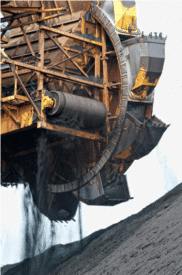With all the hullabaloo surrounding a handful of ports considering coal exports, it’s easy to forget that many communities are flatly rejecting it. In fact, coal is so unattractive that a number of Northwest ports have already said no, despite aggressively pursuing new business. Recently, the Port of Tacoma, located on Puget Sound, and the Columbia River Ports of Vancouver, Kalama, and Portland have all considered—and rejected—coal export proposals.
Port of Vancouver, Washington
The Columbian newspaper framed up the Port’s choice, writing, “faced with a choice of helping to grow food or feed industry, the Port of Vancouver picked a fertilizer ingredient over the dirtiest fossil fuel on the planet.”
Larry Paulson, the Port of Vancouver’s executive director, pointed out that “coal facilities have a tendency to come and go,” and that was a big reason why Vancouver favored a terminal for potash, a more stable commodity. The Port’s operations manager, Mike Schiller, put it even more directly: “coal is the most risky bulk mineral market.”
Port of Tacoma
The headline of Platts Coal Trader said it all: “Tacoma Port torpedoes coal terminal plan.” The Port of Tacoma stated that it rejected a large export proposal in 2010 because of a “multitude of business and community factors.” Local citizens have concerns about the health effects of coal dust and the impact of coal trains.
Port of Kalama
Kalama rejected a coal export proposal from Millennium Bulk Terminals in 2010. Kalama told Millennium that “after considerable deliberation on the issue, the Port will not be moving forward with plans for a coal export facility.” After the rejection, Millennium now seeks to site its project in Longview.
Port of Portland
The Port of Portland made clear that “a coal terminal is off the table for existing and future Port of Portland facilities.” A media statement explained, “The Port needs to be reflective of the community and its values. Coal doesn’t seem to fit within those values.”
Perhaps heeding the Port of Vancouver’s statement that “coal is the most risky bulk mineral market,” no public port has voted to approve a coal export terminal. Coal is a notoriously unstable and risky commodity. That’s why business reporter David Gambrel, writing for the industry publication Coal Age, questioned whether export facilities on the West Coast make sense:
Will there be sufficient demand to justify a new coal supplier…? Let us not forget the same China that threatened to export coal 10 years ago is now viewed as a buyer with deep pockets and endless demand. How long will this last?
It’s an important question. Coal exports from Washington would rely on Asian markets that have historically been fickle. China, which has large domestic coal reserves, is both an importer and exporter of coal. It’s enough to make some insiders, including some commodities analysts, believe that the coal export market to China may be overhyped.
If those bearish analysts are right that coal is currently overhyped, it wouldn’t be the first time. West Coast port cities have already gambled and lost on coal export facilities. After investing millions of dollars in infrastructure and setting aside sizeable harbor acreage to coal export facilities, both Portland and Los Angeles watched their promised revenue from coal exports evaporate.
Tune in next week for the full story of what happened to coal export terminals in Portland and Los Angeles.
Much of this blog post originally appeared in the research memo “Coal Export: A History of Failure for Western Ports,” a joint project of Sightline and Columbia Riverkeeper.









Charlie Maliszewski
Useful article. Unfortunately, the link for the Deutsche Bank commodities analyst comments is unproductive. Do you have a more useful citation for that particular item?
Eric de Place
Thanks, Charlie. The link is fixed now.